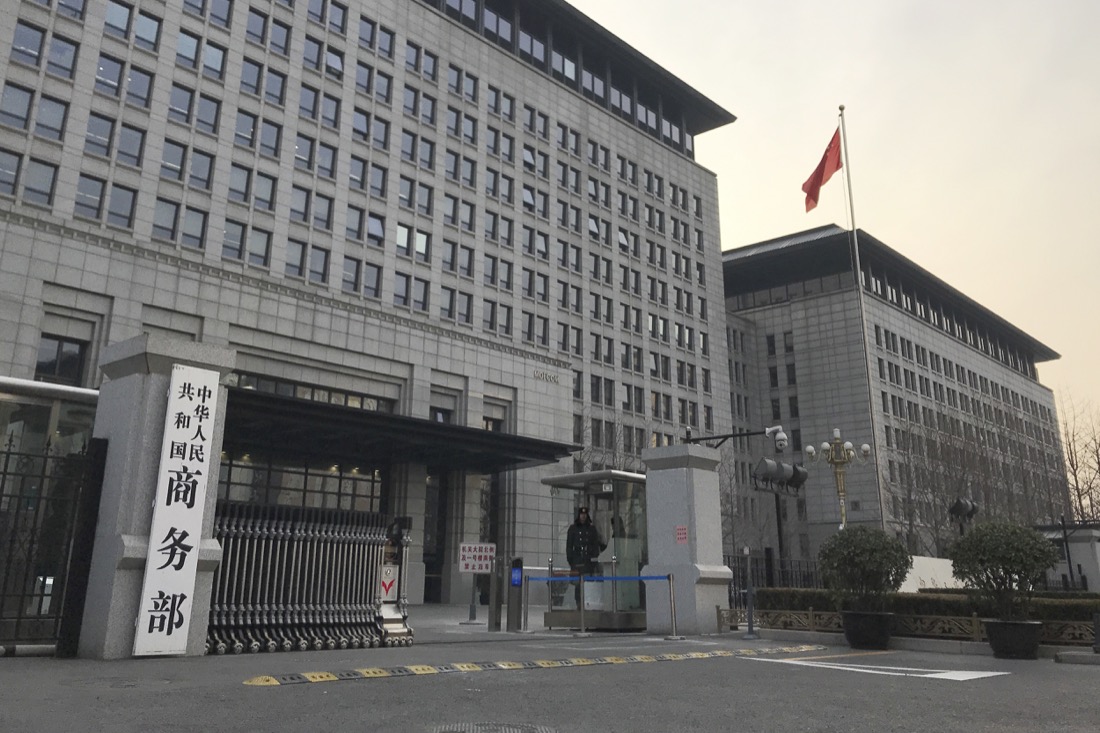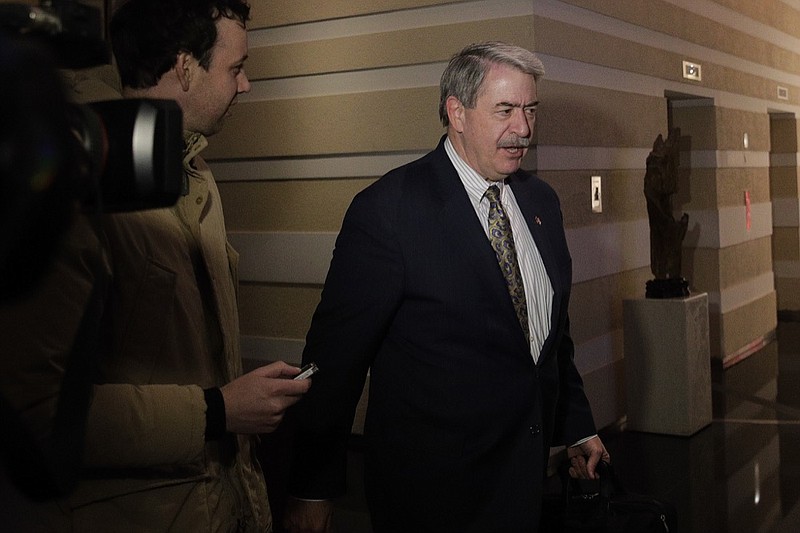BEIJING - Three days of trade negotiations between midlevel American and Chinese officials ended in Beijing on Wednesday afternoon with progress in identifying and narrowing the two sides' differences but little sense of when they might reach a deal.
The trade talks could help clear the way for higher-level talks this month when President Donald Trump attends the World Economic Forum in Davos, Switzerland. Vice Premier Liu He, China's economic czar, is expected to go to Washington sometime after that.
 A Chinese paramilitary policeman stands guard at the main entrance gate of the Ministry of Commerce in Beijing, Wednesday, Jan. 9, 2019. U.S. and Chinese envoys extended trade talks into a third day Wednesday after President Donald Trump said negotiations aimed at ending a tariff war were "going very well!" (AP Photo/Oliver Zhang)
A Chinese paramilitary policeman stands guard at the main entrance gate of the Ministry of Commerce in Beijing, Wednesday, Jan. 9, 2019. U.S. and Chinese envoys extended trade talks into a third day Wednesday after President Donald Trump said negotiations aimed at ending a tariff war were "going very well!" (AP Photo/Oliver Zhang)Chinese officials had no immediate comment, although the Commerce Ministry is expected to address the negotiations on Thursday.
In a statement after the talks ended, the U.S. trade representative's office said the two sides had discussed China's pledge to buy a "substantial" amount of U.S. agricultural, energy and manufacturing products.
Negotiators also focused on White House concerns about China's approach to intellectual property protection and its practice of so-called forced technology transfer, the statement said.
The Trump administration wants to ensure that China keeps its commitments in any deal that is reached. To that end, the statement said, officials discussed "the need for any agreement to provide for complete implementation subject to ongoing verification and effective enforcement."
The U.S. delegation plans to report back to the White House to determine what happens next. The administration has set a March 2 deadline for raising tariffs on roughly two-fifths of annual U.S. imports from China if no deal is reached.
"I'm optimistic that they're making progress - the tone of the talks is important, and this tone has been good," said Dean Pinkert, a former commissioner of the United States International Trade Commission.
At issue is the extent to which China is willing to offer binding commitments to change trade practices that have long irked Trump and his administration.
The scheduled two-day talks extended into a third day as U.S. officials pressed China for more details on how it will live up to its commitments, said people with knowledge of the negotiations, who insisted on anonymity.
